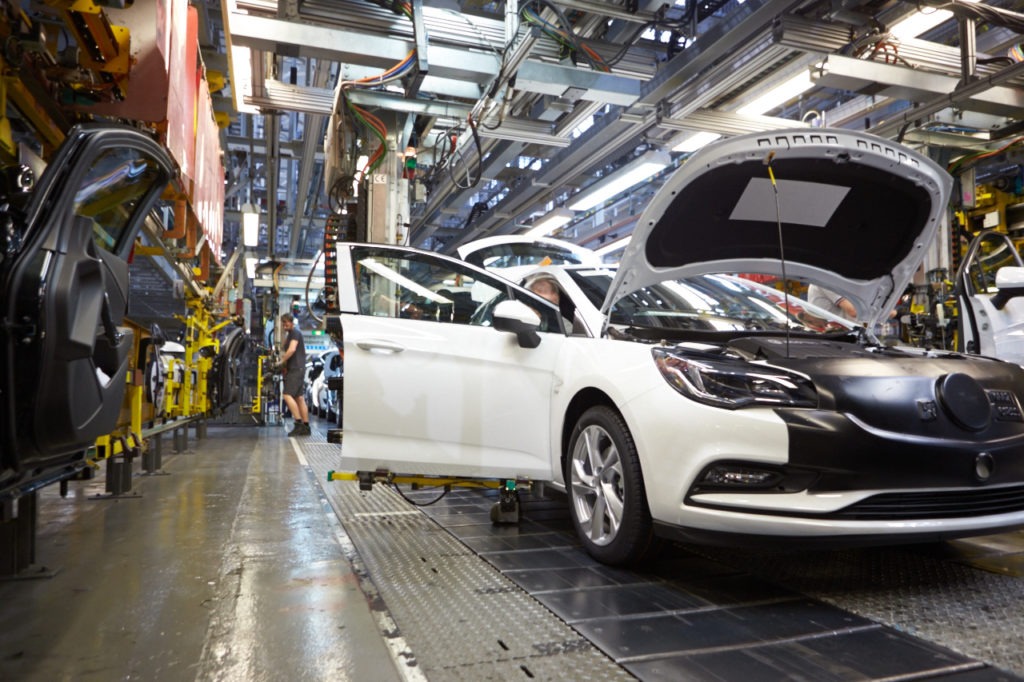PSA plan for Opel sees discussions with dealers and workforce while CEO Tavares defends Vauxhall
14 November 2017

14 November 2017
PSA brand Opel will look at its dealer contracts as part of its turnaround plan to bring it back to profitability after a turbulent time under General Motors (GM) ownership.
The latest company to look at its dealership contracts, following discussions between Volkswagen (VW) and Smart and their respective partners. Opel believes that the growing competitive nature of the automotive market as well as the new technologies coning through means that the company needs to improve its business models and respond to the growing demand for digital sales platforms, as well as new mobility concepts.
Speaking to Automobilwoche, Opel sales chief Peter KÜspert said: ′There are no taboos, but a clear commitment that performance will be even more rewarding in the future. In future, our incentive programs for dealers will not only aim to sell a large number of units, but will also reflect the fact that it is worthwhile to sell higher-quality models for dealers, and from as early as 2018.’
Opel believes that it cannot ignore what it calls huge differences in trader performance, and has already had discussions with those that are underperforming. The overall goal is to promote performance and profitability within the trade.
The PACE plan may say that job losses are not forthcoming, however, speaking at the Automobilwoche Congress in Berlin, PSA CEO Carlos Tavares said that layoffs could be avoided only to the extent that the implementation of the restructuring plan was successful. It is expected that wage costs are to be lowered through severance payments, new working time concepts and partial retirement. A large number of 40-hour contracts will be lowered to 35-hour, although discussions with employee groups are ongoing. The company has already cut 400 jobs at the UK’s Ellesmere Port plant.
The Opel recovery plan envisages generating an operating profit of 2% of sales with the loss-making automaker in 2020. By 2026, the margin should rise to 6%. This is to be achieved, among other things, by a forced change to technologies of the PSA Group. There should also be a rapid introduction of electric models in order to be able to comply with the emission standards of the European Union. Opel is still “not ready for the upcoming CO2 targets, Tavares admitted.
With this goal in mind, two models already planned, which are still based on the technology of the former Opel owner General Motors, will be replaced by new projects on PSA platforms in the Eisenach and RÜsselsheim plants. The Opel Ampera-E plays no role anymore, as this uses technology licenced by GM and therefore costs money to produce. By 2020, Opel plans to have four electric models using PSA technology on the market, including the new Corsa, while four years later it will be able to offer each model in an electric variant.
Meanwhile, the French manufacturer group is also pushing the UK factories it acquired under the Vauxhall brand to leap forward in competitiveness to offset potential risks posed by Brexit. The plants, where production costs are about twice as high as the French automaker’s domestic sites, face hurdles in either a hard or soft Brexit scenario, Tavares said.
If the UK reaches a trade deal with the European Union, the plants will need to be competitive with facilities in continental Europe. Without a trade agreement, they will need to vie with factories overseas,
Reviving the Vauxhall nameplate is probably the biggest challenge in PSA’s plan. While the strategy includes prospects to export Opel vehicles into more than 20 new markets, Vauxhall remains relegated to the UK, raising questions about its future.
Tavares argues that there is value in developing the marque around its long heritage to reconnect with British consumers. ′I consider Vauxhall as an asset and not a penalty,’ he said. ′I don’t see there’s a risk that Vauxhall doesn’t stay.’
Photograph courtesy of GM